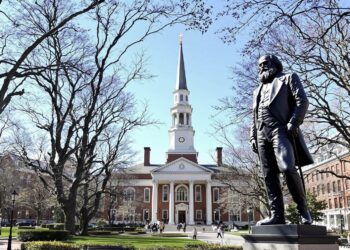In a recent 2024 interview with Russell Brand, Steve Bannon revisited a pivotal 2018 speech he delivered in London among people who were not necessarily his supporters at the time, igniting widespread attention on Populism and bringing many people to his way of thinking.
One audience member reacted to the 2018 speech at the time by saying, ” There were Boos at the beginning for Bannon, no boos at the end. Bannon is a straight up guy. Great talk. Respect to Oxford Uni for this.”
The 2018 Oxford speech Bannon referenced was a foundational introduction to his Global Populist-Nationalist ideology. It shed light on the global escalating sense of disenchantment among people towards their government elite and the surging influence of oppressive globalist movements on the political left.
This ideology, which Bannon is known to champion, is the foundation of the historic and popular WarRoom program. It is also the foundation of much of the MAGA movement and Donald J. Trump’s America First policy agenda for the United States.
Bannon’s remarks in 2018 centered on his perspective on the fusion of Populism and nationalism in policymaking and its impact on nations’ rescue efforts for their marginalized and broken citizenry.
“America is a revolutionary power,” Bannon said in the Oxford speech, adding later, “and we are looking for allies.” Bannon explained that haughty Globalism doesn’t align with the American populist spirit of Independence and further explained why Bannon is spreading that message as the America First foreign policy in other countries.
Reflecting on his belief that America embodies a revolutionary spirit, he emphasized the pursuit of allies aligned with this ethos, contrasting it with Globalism’s incompatible nature. Bannon’s “America First” foreign policy dissemination underscored his mission to preserve the nation’s Independence and cultural identity.
The beauty of an independent American spirit is a message Bannon has made famous in other parts of the Globe, making him a revolutionary rebel to the elite.
That is because Bannon champions the “little guys.”
A key theme of Bannon’s Oxford speech was the rational anger of the populace, stemming from the weight of economic burdens inherited by future generations due to irresponsible governance. He advocated for the deconstruction of what he calls “the administrative state,” distinguishing between left-wing and right-wing Populism in their respective stances on government intervention.
Simply, in general, the left Populists want more government intervention, and the right Populists want less government.
Drawing from his multifaceted background, including his time as Trump’s White House Chief Strategist, Bannon highlighted the necessity of economic nationalism to reclaim manufacturing jobs and rectify trade imbalances. He pointed to pivotal events like the 2008 financial crisis and costly Middle Eastern wars as catalysts for the rise of populist sentiments.
Bannon discussed geopolitical affairs, highlighting the need to reevaluate international alliances and commitments to prioritize national interests. He critiqued the prevailing post-war international order as unequally benefiting global elites, advocating for a shift towards bilateral relations and fair trade agreements.
Addressing criticisms of Populism as synonymous with fascism, Bannon made the distinction, emphasizing the rejection of crony capitalism and centralized authority. He championed the empowerment of citizens over state control and corporate interests, advocating for economic policies prioritizing citizenship value over shareholder value.
Bannon’s speech resonated with themes of societal division, economic disparity, and the erosion of national sovereignty. He underscored the urgency of transformative leadership to address these challenges, positioning figures like Trump as historical figures disrupting the status quo.
In light of Brexit and other populist movements across Europe, Bannon emphasized the importance of grassroots activism and national sovereignty. He characterized the struggle against entrenched globalist interests as a noble experiment, acknowledging the obstacles posed by entrenched establishment forces.
In conclusion, Bannon’s speech at the Oxford Union served as a call to action for citizens to reclaim control over their destinies, challenge entrenched power structures, and forge a path toward a more equitable and sovereign future.
That is where MAGA came from, and where the WarRoom continues building.
WATCH THE FULL SPEECH:
See the Bannon-Brand interview:
Unveiling the Essence of Populism: A Riveting Dialogue between Steve Bannon and Russell Brand




